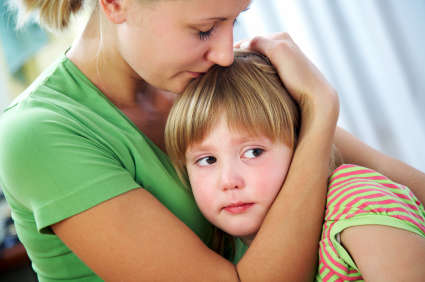
Let’s Talk About Death With Our Children
20 Sep 2015 | 3 min Read
Oindrila Purohit
Author | 6 Articles
Recently, my daughter came home very worried. She had just discovered that her friend’s mother is dead. Her little mind working overtime trying to fathom the real meaning of ‘dead’, scared if she too would have to lose me some day, trying hard to imagine what lies beyond the realms of our human world, and by any chance if her friend will ever get to meet her mom again. It is then I realized, while we would like to keep our children shielded from all the harshness, it is rarely a possibility. For many mothers, explaining death to a 5 year old maybe a tough task. Here is a guide that could be useful in explaining ‘death’ to kids.
1. Know what your child already knows:
Children, as young as preschoolers, have a base idea about death. The source mainly being fairy tales, serials and movies, stories, ongoing news channel, discussions at home, loss of a pet, pest killing by grown-ups, etc. They form a primitive impression depending on how their trusted adults have reacted on different occasions. Before we begin a conversation, it is important for us to know what imprints have already formed in their mind.
a. Set the mood: Find a story that mentions death, like Snow White or Crocodile and the Monkey. When you come to the part that suggest death ask your child what they think the word ‘Dead’ mean. Be ready to be surprised.
b. Be neutral: How you feel about the topic will determine what your child’s perception will be. Practice before you speak.
c. Start at the stop: We usually try to be age appropriate in our conversation with children. However, similar age children do demonstrate different levels of maturity. Address the topic depending on how much they already know and how much you think they can handle.
2. Choose your words:
Most often we avoid using the word dead and replace it with terms like ‘passed away’, ‘sleeping’, ‘become a star’. It can be confusing for children. If you say that someone ‘passed away’ or has ‘gone to sleep’, your child might be confused or frightened. For example, a child who is told that ‘Grandpa has gone to sleep forever’ might get scared of daddy sleeping believing he too may never wake up.
3. Draw parallels:
Fiction works best with children as it takes them away from reality. Fictions act as filters, limiting young minds to get overwhelmed by the complexities of emotions experienced during the conversation. With the onset of Indian festivals, talking about Idols could be a good way to introduce the concept of Birth-Life-Death and Rebirth. After all, like the idols we all emerge from nature, with life blown into us, go back to nature and come back in a new form each year.
4. Take your time:
Don’t expect an immediate outcome. So, don’t over stretch. It takes several conversations and perhaps experiences to form a mindset. Give the seed of your new thought some time to grow. Assure them that you are available whenever they feel like talking about the topic.
A


Suggestions offered by doctors on BabyChakra are of advisory nature i.e., for educational and informational purposes only. Content posted on, created for, or compiled by BabyChakra is not intended or designed to replace your doctor's independent judgment about any symptom, condition, or the appropriateness or risks of a procedure or treatment for a given person.
